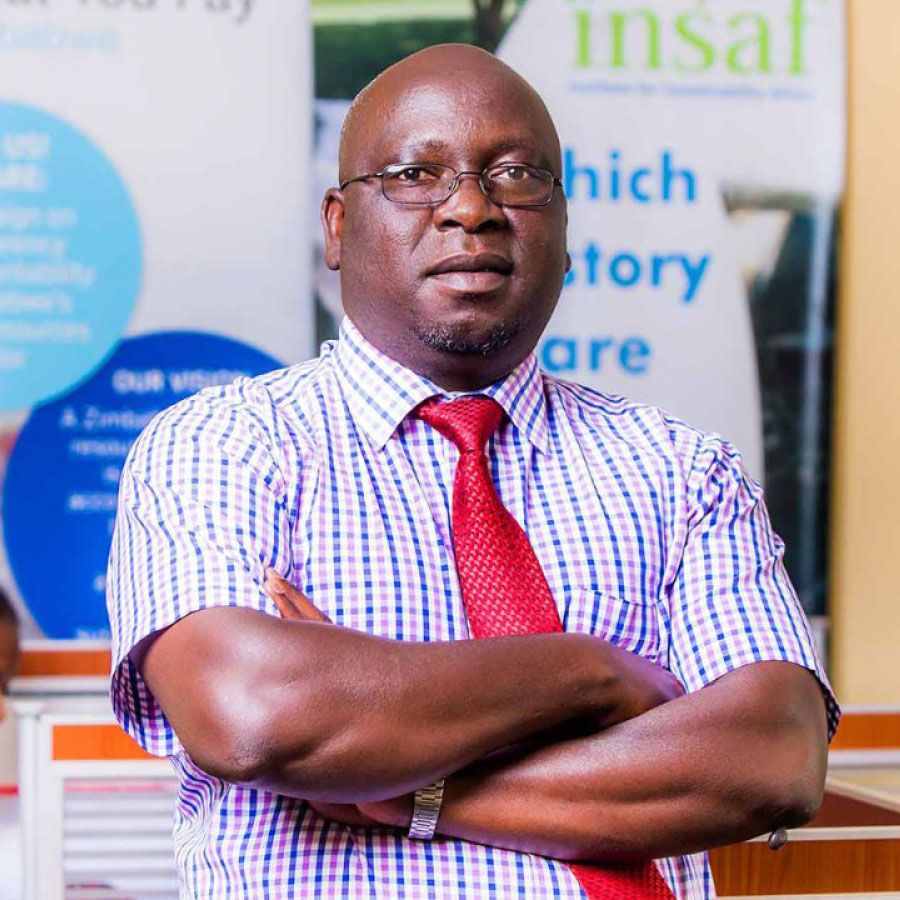Rodney Ndamba.
Creating value through sustainability
Zimbabwe


Rodney Ndamba FCCA discovered his passion for sustainability reporting in 2007 after reading a copy of Accounting for the Environment by Rob Gray and Jan Bebbington.
The next year, a cholera outbreak in his home country of Zimbabwe led him to reflect on the extent to which businesses were monitoring the kinds of environmental issues that had contributed to the epidemic.
After doing some research in 2009, Ndamba discovered that only around 3% of companies listed on the Zimbabwe Stock Exchange were accounting for their environmental impacts and reporting on them in their annual reports. Determined to change this situation, he set up an Africa-focused sustainability think tank and research institution, which came to be known as the Institute for Sustainability Africa (INŚAF).
Today, INŚAF has a hybrid organisational model that combines both commercial and non-profit activities. On the commercial side, INŚAF provides consultancy and training services, offering advice, education and support in sustainability-related areas including reporting, strategy development, policy formulation, and leadership. On the non-profit side, INŚAF undertakes sustainability-related projects, as well as research into a wide range of business issues.
Sustainability should be core to all business strategies, according to Ndamba, because it influences sustainable value creation and comprehensive risk management.
He says: ‘If a corporate is looking at business growth, for example, what are the potential sustainability-related risks and opportunities that they need to think of?’
Furthermore, sustainability reporting is critical to strategy development because it allows organisations to measure, manage and be accountable for their sustainability impacts. ‘In reality, sustainability reporting is not really about collecting the numbers and reporting them,’ Ndamba explains. ‘It’s about the sustainable transformation that takes place in an organisation throughout the year.’
Ndamba, who is a member of ACCA’s Global Forum for Sustainability, believes that accountants must be part of the team that compiles an organisation’s sustainability report. ‘They can play a validating role by linking some of the non-financial information to the financial information,’ he says.
As well as supporting sustainability reporting, accountants can ensure that sustainability is considered by organisations as part of the strategic planning process and evaluate whether targets are realistic. They can also help to identify which resources their organisation will need to achieve a sustainable, long-term strategy and suggest how those resources should be allocated. ‘Accountants can play a critical role in strategy setting,’ says Ndamba, ‘rather than just being involved with reporting at the tail end.’